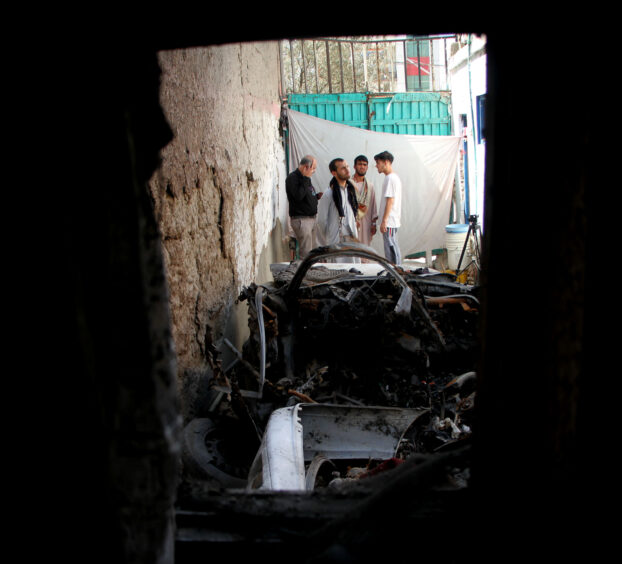
The Afghan survivors of an errant US drone strike that killed 10 members of their family, including seven children, have said that sorry is not enough.
Emal Ahmadi, whose three-year-old daughter Malika was killed on August 29 when the US hellfire missile struck his elder brother’s car, told The Associated Press that the family has demanded an investigation by Washington into who fired the drone and punishment for the military personnel responsible for the strike.
“That is not enough to say sorry,” said Ahmadi. “The USA should find the person who did this.”
Ahmadi said the family is also seeking financial compensation for their losses and demanded that several members of the family be relocated to a third country, without specifying which one.
The AP and other news organisations in Kabul reported after the strike that the driver of the targeted vehicle, Zemerai Ahmadi, was a longtime employee at an American humanitarian organisation and cited an absence of evidence to support the Pentagon’s assertion that the vehicle contained explosives.
The missile struck as the car was pulling into the family’s driveway and the children ran to greet Zemerai.
On Friday, US marine General Frank McKenzie, head of US Central Command, called the strike a “tragic mistake”, and after weeks of denials said that innocent civilians were indeed killed in the attack, and not an Islamic State extremist, as was announced earlier.
Meanwhile, Boris Johnson has been accused of adopting a “more casual” approach to Britain’s national security as MPs warned Whitehall was unable to cope with more than one major crisis at a time.
The Joint Committee on National Security Strategy, made up of senior MPs and peers, said the Taliban gaining control of Afghanistan had shown the current system was “inadequate to the task”.
In a highly critical report, the committee said the lack of preparation for the withdrawal of international forces from Afghanistan could “only be described as a systemic failure”.
However, it said that reforms to the National Security Council meant the prime minister would slash the time he spent leading its meetings by around two-thirds.
Taliban tortured me and killed my father: Ex-interpreter calls for UK help
The report said: “Under the new system, the prime minister will spend roughly 65% less time in NSC meetings than under the previous practice of weekly meetings when parliament is in session. In our initial assessment, therefore, this is a retrograde step that suggests a more casual approach to national security.”
The committee chair, former foreign secretary Dame Margaret Beckett, said: “The whole point of the National Security Council is that it is supposed to prepare for, and act upon, a long-term view of our national security risks.”
Meanwhile, the Taliban has replaced Afghanistan’s women’s ministry with an all-male “vice and virtue ministry” tasked with enforcing the group’s extreme interpretation of Islam.
It follows the ban on higher education for girls, with secondary schools to reopen for boys only.
Three explosions targeting Taliban vehicles in the capital of Nangarhar province have left at least three dead and 20 wounded. No-one immediately claimed the attack, but IS-K, which opposes the Taliban rule and was responsible for the attack on Kabul airport that killed 170 people, was suspected of involvement.

Enjoy the convenience of having The Sunday Post delivered as a digital ePaper straight to your smartphone, tablet or computer.
Subscribe for only £5.49 a month and enjoy all the benefits of the printed paper as a digital replica.
Subscribe © Xinhua/Shutterstock
© Xinhua/Shutterstock